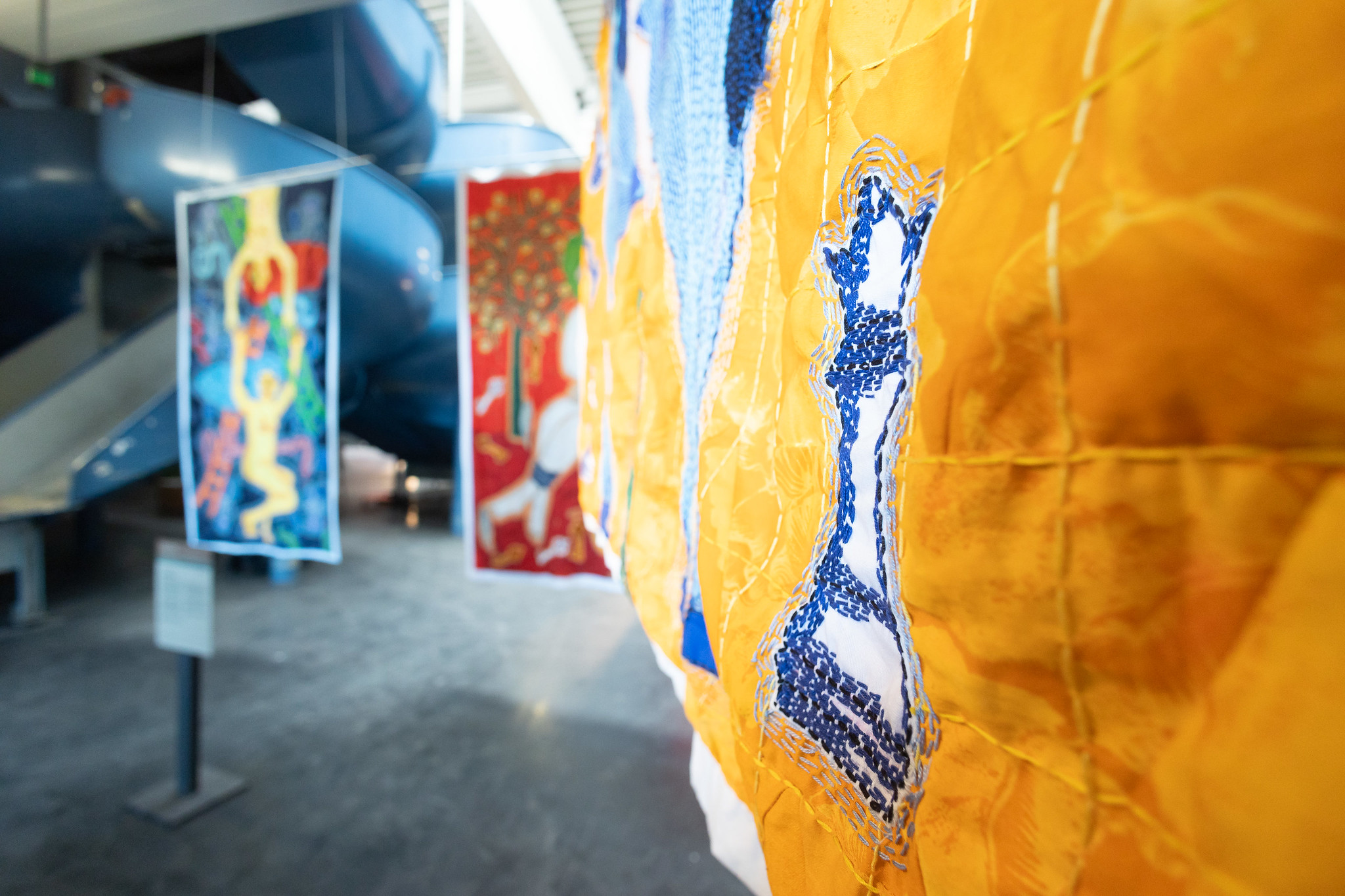
Long Nights / Kholod Hawash (IQ), Photo: Markus Schneeberger
State of the ART(ist) – Cultural Diplomacy and the Freedom of Art
State of the ART(ist) is aimed at creatives living at risk to provide concrete financial support and visibility to artists living in oppressed political systems.
But it also wants to take the urgency of the drastic situation for artists in many countries to ask the global question of where political influence and aggression are preventing artists from taking their role for and in society. In addition, the Digital Deal Award will be presented, recognising art projects that specifically address the nondemocratic use of technology or attempts to undermine its use and stand up for freedom of expression.
Open Call
Final submission deadline: May 20th, 2024, 23:59 CEST
Projects can be submitted by artists whose livelihoods are severely affected by the effects of the following threatening situations:
- Trouble spots, political interference, and warlike aggression
- Lack of freedom of expression or social repression of individual lifestyles
- Natural disasters or consequences of the climate crisis, leading to radically changed living conditions
- Consequences of global trade and economy: Social injustice through production and working conditions, as well as exploitation of raw materials and environmental pollution
The prize is aimed exclusively at artists who find themselves in situations and places that can be directly linked to the above criteria and whose individual life situation is therefore characterised by “uncertainty” and “risk”. The answer to the question “What is Risk?” becomes a basic requirement for a valid submission. However, this aspect does not constitute an evaluation criterion for the jury. The jury’s work and the selection of the winners will be based exclusively on the artistic quality of the submitted works.
The State of the ART(ist) initiative is looking for (collective) works, projects and actions at the intersection of art and human rights. (Micro-)performances, pop-up grassroots movements (whether active or inactive), social software, AI projects as well as (e)rights or advocacy projects can be submitted. There are no restrictions regarding formats. Commercial or propagandistic projects are excluded from participation in the competition. The focus is on the message and activity rather than on the tools and materials used to express it.
Individuals as well as collectives can submit: Artists, creatives, curators, writers, critics, scientists, entrepreneurs, associations, public institutions, NGOs, or private enterprises (not limited to), no matter if individuals or groups, can enter the open call.
Anonymous submissions are possible: Submissions can be either personalized or anonymous. We only require an e-mail address as contact.
What the winners can expect
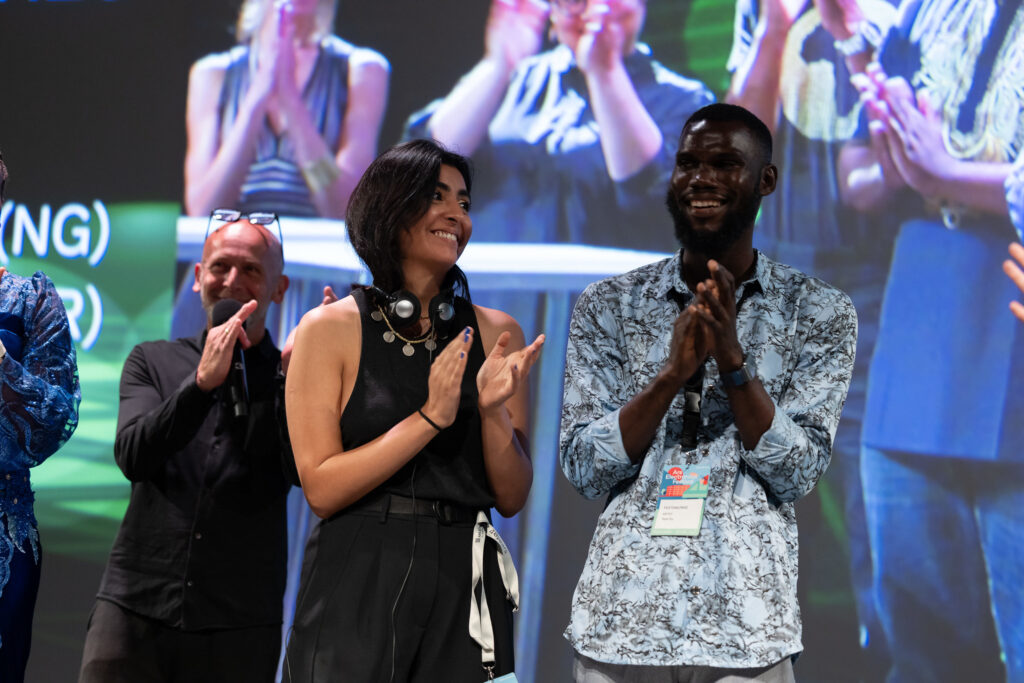
2 Main Prizes: The two winning projects will each receive 3,000 euros in prize money.
The 8 Honorary Mentions will receive each 750 euros presentation fee.
Awarding of the 2023 State of the ART(ist) Award. Photo: vog.photo
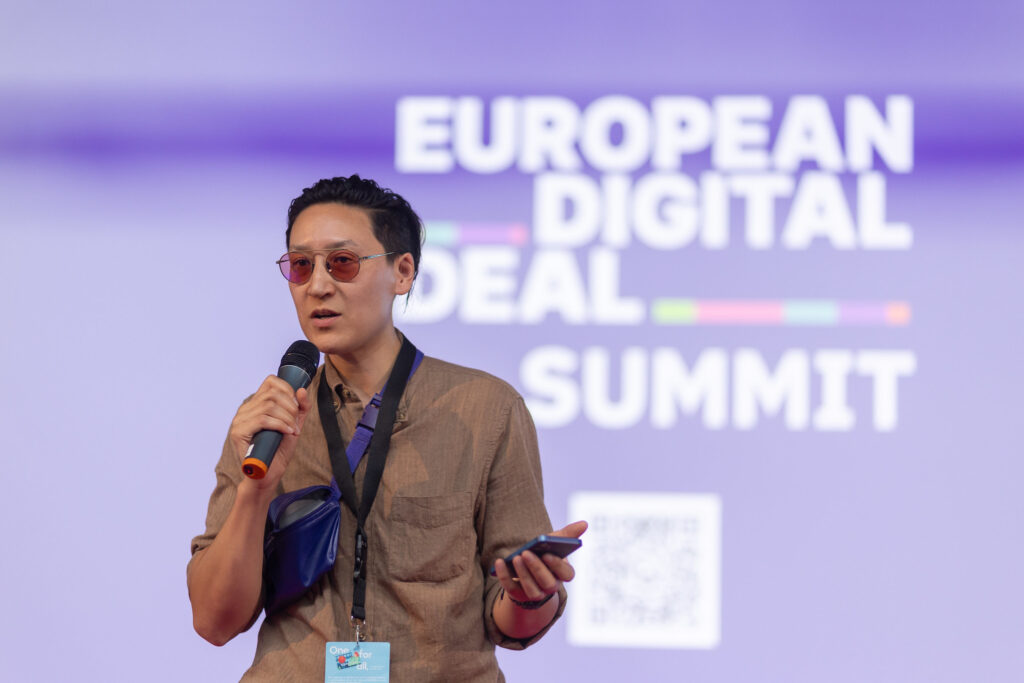
Digital Deal Award: The prize is endowed with €2,000.
2023 European Digital Deal Summit, Photo: Tom Mesic
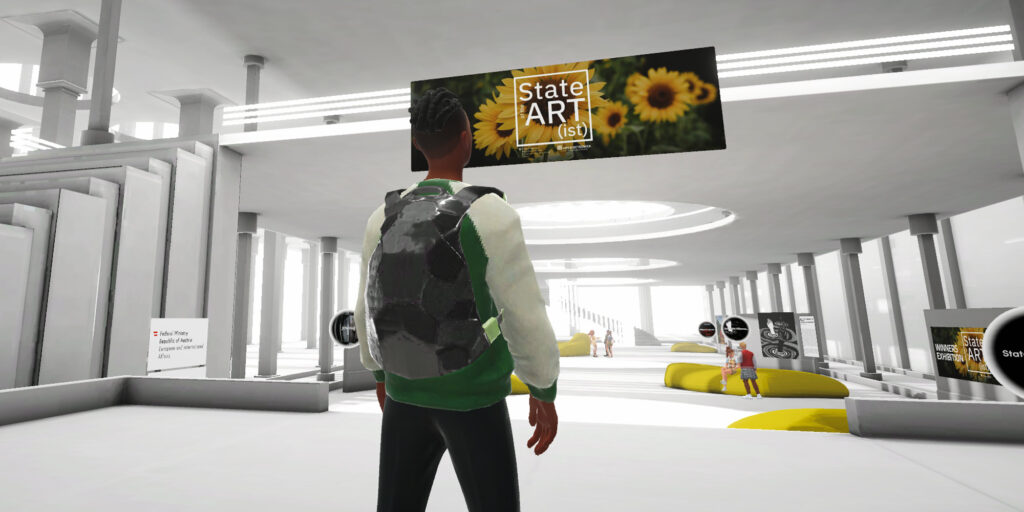
All award-winning projects will be presented in the virtual Kunsthalle, an online documentation and action space that will be freely accessible during the festival and beyond. The online space will technically ensure that the integrity and privacy of the entrants are protected (as well as their anonymity, if desired). However, it will also serve as a digital marketplace for all submitting artists whose work has been prevented or made impossible and invites international experts to explore the award-winning works.
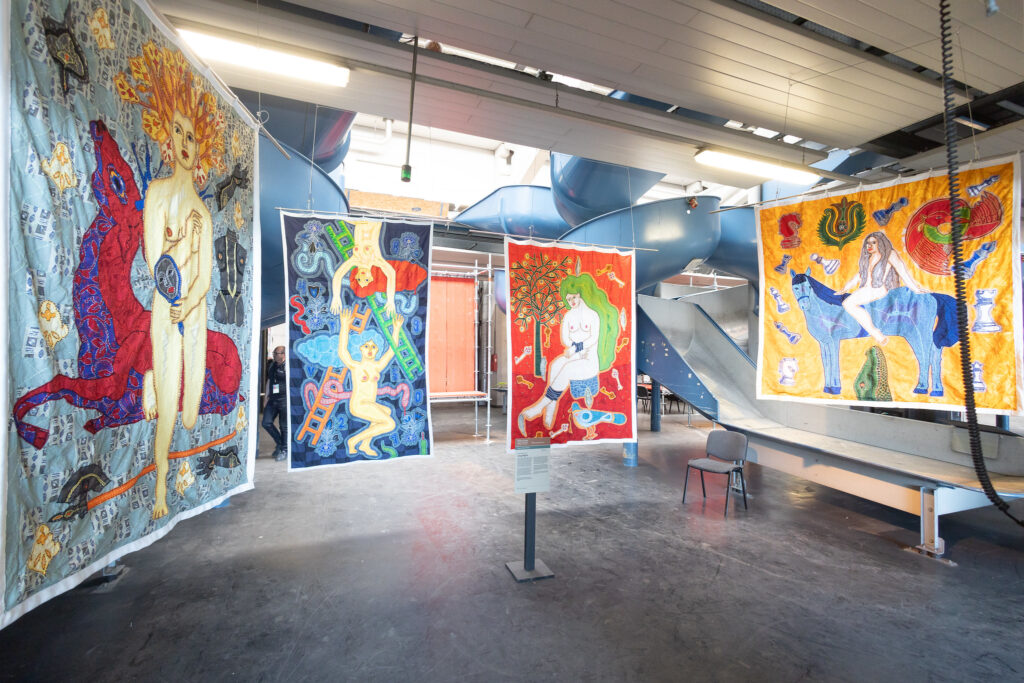
A selection of the award-winning projects, including the two main prizes and the Digital Deal award, will be presented in a curated physical exhibition within the 2024 Ars Electronica Festival, September 4-8, in Linz, Austria.
Long Nights / Kholod Hawash (IQ). Photo: Markus Schneeberger
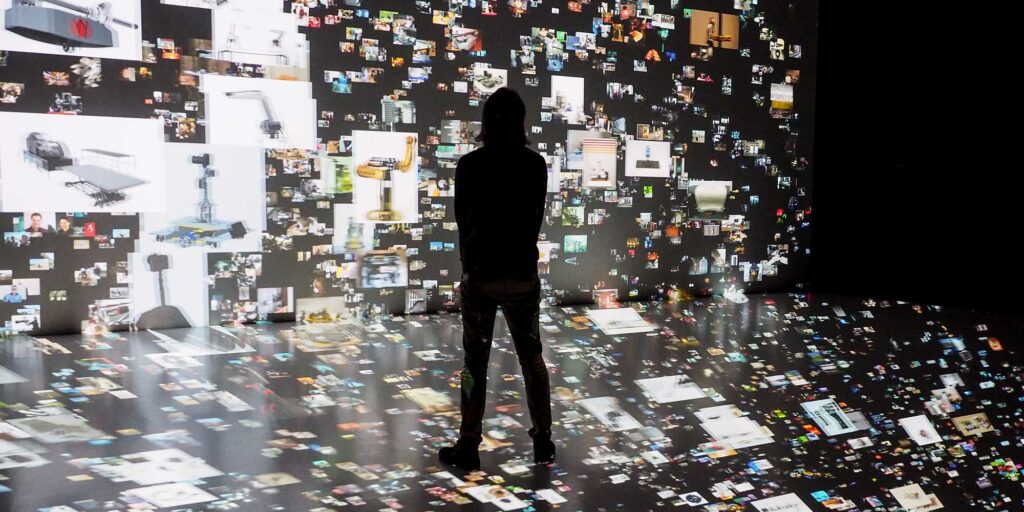
All works will be included in the Ars Electronica Archive, one of the world’s most comprehensive archives for digital media art since 1979.
Photo: Ars Electronica / Martin Hieslmair
Selection process
- 20 experts will be invited to share the initiative with their communities and to invite artists to submit to the call.
- After the submission deadline, an international jury, consisting of five renowned personalities from the international media art and curatorial world, representing international institutions, will make the selection of the two main prizes, the eight Honorary Mentions as well as the Digital Deal Award.
- In addition, the jury will facilitate the social contacts between entrants and curators that are so important for the continuation of an artistic career.
Timeline
| April 15, 2024 | Launch of the global Open Call |
| May 20, 2024 | Submission deadline |
| May and June 2024 | Jury meeting |
| July 2024 | Public winner announcement |
| September 4 – 8, 2024 | 2024 Ars Electronica Festival in Linz, Austria |
The initiative
State of the ART(ist), a collaborative project between the Austrian Ministry of Foreign Affairs and Ars Electronica, was established in 2022. The starting point of this initiative was Russia’s brutal acts of war on Ukrainian soil, with its complex effects on world affairs and the individual lives of artistically engaged citizens, that provided the impetus for the initiative’s orientation.
In its continuation and further development in 2023, the Open Call focused on the question of risk and existential uncertainty in the current global reality. In 2024, the Digital Deal Award will also be presented, which rewards artistic exploration of technology and democratization.
The Digital Deal Award draws attention to new threats looming on the horizon of freedom of speech. Repressive (or non-repressive) political regimes have recently found in technology a subtle but powerful tool with which to shape politics, society, and narratives.
The State of the ART(ist) initiative is positioned close to the Ars Electronica Award for Digital Humanity and benefits from the already existing and fruitful collaboration between Ars Electronica and the Austrian Federal Ministry for Foreign Affairs. It strives for a longer-term collaboration and devotes itself to the central question of freedom and art to be an offer for the coming years for the artists in focus in each case. The Ars Electronica Festival provides an international platform and visibility for the presentation of the submitted works.
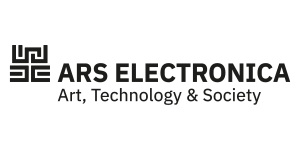
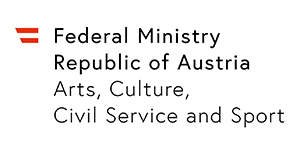
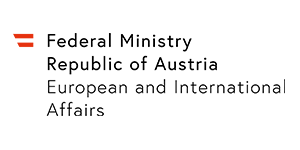
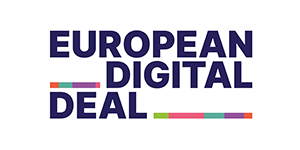
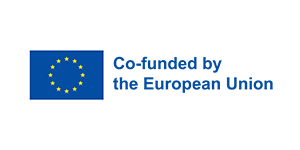
The Digital Deal Award is funded by the European Digital Deal project. This project has been co-funded by the European Union’s Creative Europe programme under grant agreement No 101100036. Views and opinions expressed on this page are those of the author(s) only and do not necessarily reflect those of the European Union or the European Education and Culture Executive Agency (EACEA). Neither the European Union nor the European Education and Culture Executive Agency (EACEA) can be held responsible for them.
This project was also co-funded by the Austrian Federal Ministry for Arts, Culture, the Civil Service and Sport.